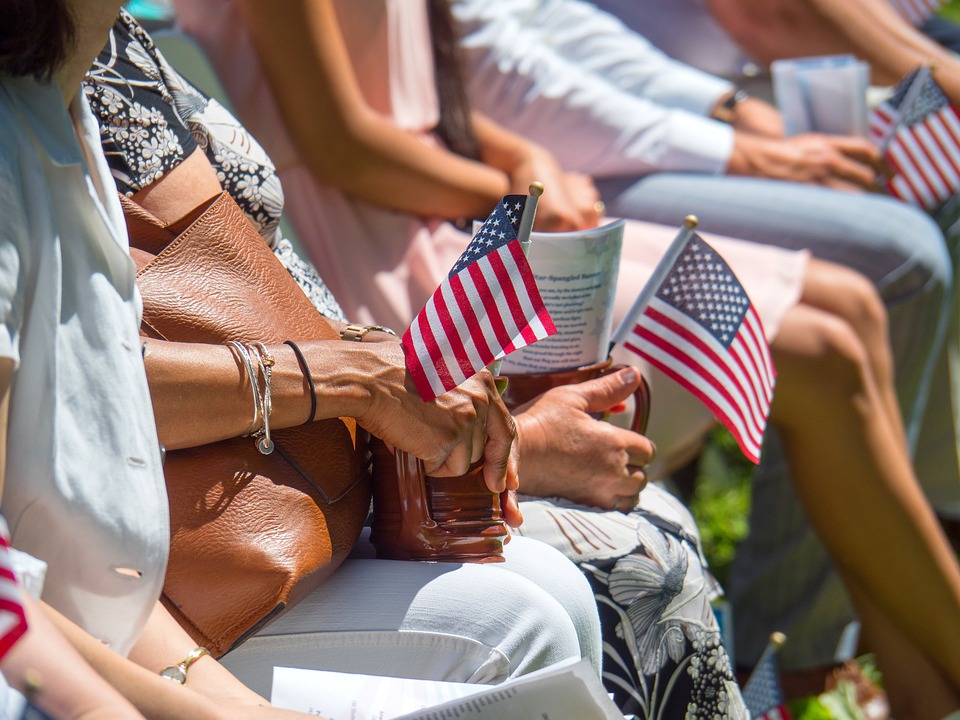In 1917, the Jones-Shafroth Act conferred U.S. citizenship on everyone living in Puerto Rico — unless they took steps to avoid that citizenship. Anyone could refuse U.S. citizenship within six months of the Act’s taking effect. They just had to swear an oath in these words: “I, ___, being duly sworn, hereby declare my intention not to become a citizen of the United States as provided in the Act of Congress conferring United States citizenship upon citizens of Porto Rico and certain natives permanently residing in said island.” The default option was, since the Island now was part of a different nation, to assume that everyone living there would have allegiance to the new nation.
“Citizenship flows from the place of birth”
An amici brief in the Supreme Court case of Fitsemanu argued for that same assumption, supporting the principle of jus soli citizenship and the idea that “a change of sovereignty over a territory extinguishes the allegiance of the population to the former sovereign and establishes its allegiance to the new sovereign.”
The brief lists many examples in which “changes in the sovereignty of a territory occasion changes in the allegiance of the population.” Looking back before the acquisition of Puerto Rico, the brief points out, “During the American Revolution, British subjects who inhabited the colonies before 1776 automatically became state citizens instead upon independence unless they actively retained their British allegiance, usually by rapidly removing to England.”
The Philippines
The argument is: “Manifestly the nationality of the inhabitants of territory acquired by conquest or cession becomes that of the government under whose dominion they pass, subject to the right of election on their part to retain their former nationality by removal or otherwise, as may be provided.”
This took place for Puerto Rico in 1917. It also took place for the Philippines in 1947, when people born in the U.S. territory of the Philippines became, by default, citizens of the new independent nation. “It is this rule,” says the brief, referring to the assumption that a new national identity for a territory ends the former allegiance, “that causes the population of the Philippines to be Filipino citizens rather than American citizens.”
The authors state the principle even more clearly: “The Philippines gained its independence in 1946. Its people thereby severed their allegiance to the United States and became citizens of the Philippines instead.”
Native Americans
Until 1898, every annexation of territory by the United States guaranteed U.S. citizenship for the people living in the territory — with one exception. The Danish West Indies, Hawaii, and Louisiana, for example, all included a right to U.S. citizenship in their treaties. Under the 1848 Treaty of Guadalupe Hidalgo, as in Louisiana, Native Americans were excluded from the promise of citizenship. Inhabitants of European heritage automatically became U.S. citizens unless they made a formal election to keep their former citizenship.
The brief describes “the unique situation of Native Americans, who, although ‘born within the territorial limits of the United States,’ were ‘members of, and ow[ed] immediate allegiance to, one of the Indian tribes.’ In the Supreme Court case of Elk v. Wilkins, the court decided that Native Americans “are no more ‘born in the United States and subject to the jurisdiction thereof,’ . . . than . . . children born within the United States, of ambassadors . . . of foreign nations.”
With this exception, the brief argues, citizenship is necessarily based on the geography location of the people and the ownership of the location.
Puerto Rico
When the U.S. accepted Puerto Rico as a territory and announced U.S. citizenship for its inhabitants, everyone who did not take steps to remain a citizen of Spain became a citizen of the United States. When the Philippines declared independence, the people born in the Philippines ceased to be U.S. nationals and became citizens of the Philippines.
If Puerto Rico were to become independent, history and legal decisions make it clear that people born in Puerto Rico would — unless they made special efforts to keep their U.S. citizenship — lose that U.S. citizenship and gain allegiance to the new nation of Puerto Rico.








No responses yet